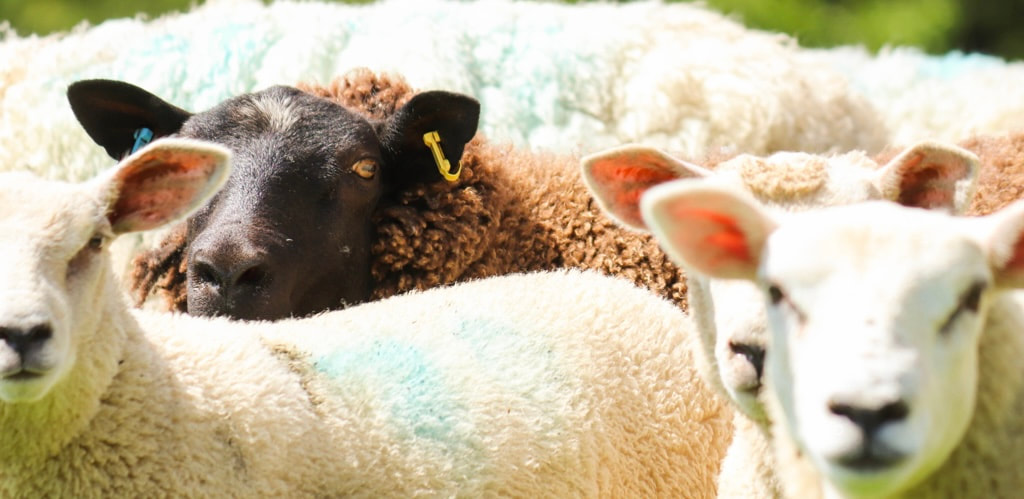|
Words are so powerful! Studies have been done showing that plants thrive and grow with loving words and wilt and wither with hateful words (IKEA study 2018). I believe that words carry an energy with them, based on what I know from the Bible and from the vibrational frequency field of study. I have recently been convicted of what language I am using in regards to my horse’s “personalities” and who I find it easier to connect with than others. Many parents find themselves in the same situation where one child is easier to parent than another… Not favorites per se, but different connections. That is very normal especially for parents with children who have mental health challenges and attachment disorders, when the child isn’t able to give a desired response to your nurture or discipline due to brain and body challenges changed from trauma. The challenge that remains is keeping yourself in check to not make this child the “other”, “black sheep”, or “difficult” child. This is especially important with children who were adopted or were in foster care as this can be an issue already. If we get into the habit of talking about the child’s issues, like we have to do at times to professionals, the child can sense our difficulty as a character flaw in them and bring about shame. Shame does not create behavioral change and it could increase the undesired behaviors because of them feeling our challenge with them!
This is not something I am immune to in my parenting or with the horses. I have been more mindful about how I speak about my herd. I often tell clients that we don’t do anything here in therapy with the horses that doesn't apply to human relationships. This work is principle based and the principles transfer! The principle then of me being mindful of my words about the horse (or child) that challenges me most, is then something I need to apply. There is one of my horses that struggles with connection because of their history and reacts by nipping me when they want to complain about anything. If I don’t stop my thoughts I can end up thinking and talking to others about how they are “naughty” or any number of complaints of my own! The more I let my thoughts go, the more negative I get, and the more I expect that horse to nip me.. and guess what? They do end up nipping me more! This is a self-fulfilling prophecy. The issue we see in our child, think about, talk about, and expect to see, usually creates a dynamic where the child (or horse) lives up to those expectations. Not something we want to do! I also want to stop here so we can halt the mom-guilt train as well. It is really hard to parent these kids who don’t receive our connection the way we want! The big behaviors are hard and we often don’t have anyone to talk to about it. I am hoping to start a mom’s group this fall to help combat this issue. (Let me know if you’re interested!) Self compassion is key to parenting with regulation and the ability for self-growth (see the awesome podcast about this by Robyn Gobbel https://robyngobbel.com/selfcompassion/). So what can we do prevent the self-fulfilling prophecy effect with our children (and horses)? Working on our thoughts does help. Stopping ourselves when we think about what challenges us in our child in a non-constructive manner. However the goal is to get our whole body and brain on board with the shift! Creating more opportunities for connection with this child and moments of joy will help give more positives to focus on. If you can also raise empathy for your child by thinking of some of the reasons why they may behave in those ways, perhaps resistance kept them safe in a time prior to your care. Also reframing some of the gifts of certain personality traits like stubbornness and anger as them being able to stand up for what they believe and think is fair, something more adults should do! There are times when it is necessary to talk about the child's behaviors to a parent who wasn’t there or professional as a part of the natural consequences of breaking a rule. A good way to prevent the shame from being the only thing they take away from the conversation, is to make sure you are saying more positive than negative. If you say one negative thing, say two specific positive things and end on the positive as well. For example when talking to dad later in the day when the child is present, “Barbie had a rough day at school where she walked out of math class and swore at the teacher. Barbie did well calming down within a few minutes and did great making it up to her teacher by helping her staple papers later. She is a helpful girl.” Specific and factual! I plan to spend intentional time with my horse this week and shoo away any thoughts that keep them in the role of the “naughty” horse and not the strong, curious, and determined horse they are! I also plan to intentionally shift how I talk about them to others and do re-dos when I mess up.
0 Comments
Your comment will be posted after it is approved.
Leave a Reply. |
Proudly powered by Weebly


 RSS Feed
RSS Feed